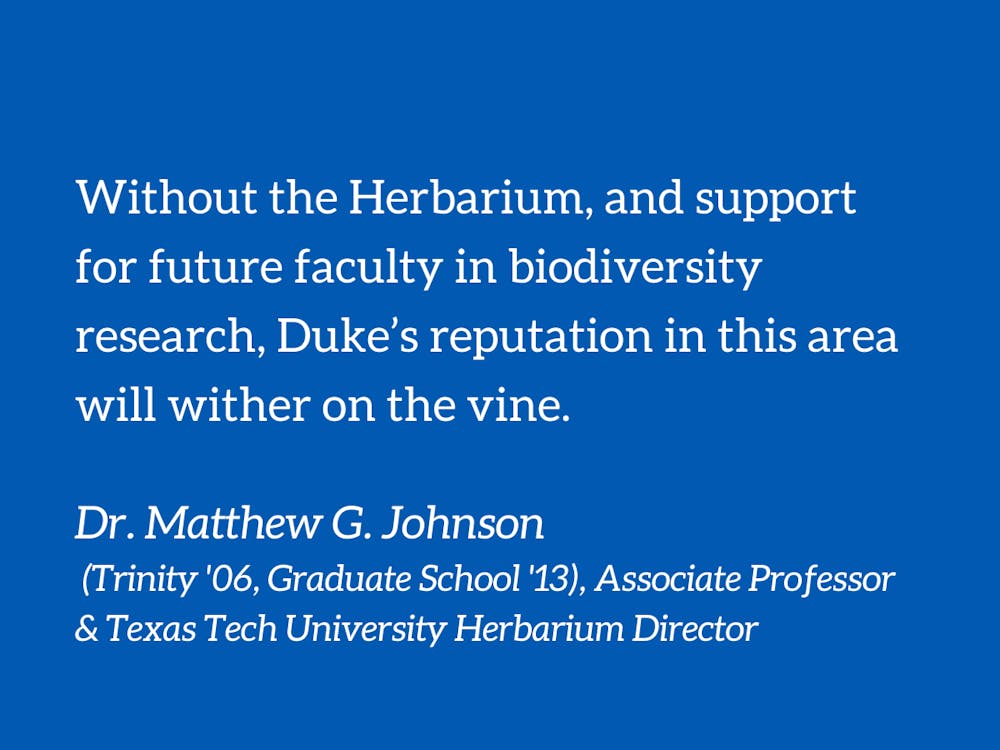I am shocked and saddened by the plan to close the Duke Herbarium — one of the most important resources in my Duke experience from 2002 to 2013. For my honors thesis, I collected mosses in the North Carolina swamps, and my work study was funded by the National Science Foundation (NSF) to digitize herbarium specimens. It was a transformative experience to see the natural world beyond the classroom, and it launched me toward my current position as a professor and herbarium director. I see the passion among this generation’s college students to solve the major climate and biodiversity challenges we face. Yet, while worldwide interest in collections as a tool for climate research is rising, Duke is removing its herbarium from campus and diminishing its students' preparation to be the future leaders we need to address the climate crisis.
Duke’s decision contradicts a pillar of its own 2023 Climate Commitment: “Prioritize investments in climate research.” Yet, with a donor available to help save the herbarium, Duke did not launch a campaign to maintain Duke’s global leadership in biodiversity research (fitting the Climate Commitment). Instead, Duke signaled that this type of contribution is unwanted. The NSF should also be concerned: After sending millions to Duke for the curation and digitization of the Herbarium, their investment is now null and void. Rather than being “good for the collection,” closing the Duke Herbarium signals that collections are temporary and will dissuade future investments globally.
Finally, Duke will be erasing an internationally recognized generational legacy. As a graduate student, I was surrounded by Ph.D. research at the leading edge of biodiversity science in plants and fungi. In just the 10 years that I was at Duke, over two dozen Ph.D. students who actively used the herbarium are now faculty, lead researchers and curators training their own students based on what we learned at Duke. Without the Herbarium, and support for future faculty in biodiversity research, Duke’s reputation in this area will wither on the vine.
Dr. Matthew G. Johnson is a Duke alum (Trinity '06, Graduate School '13) and an associate professor and the Herbarium Director at Texas Tech University.
Get The Chronicle straight to your inbox
Sign up for our weekly newsletter. Cancel at any time.

